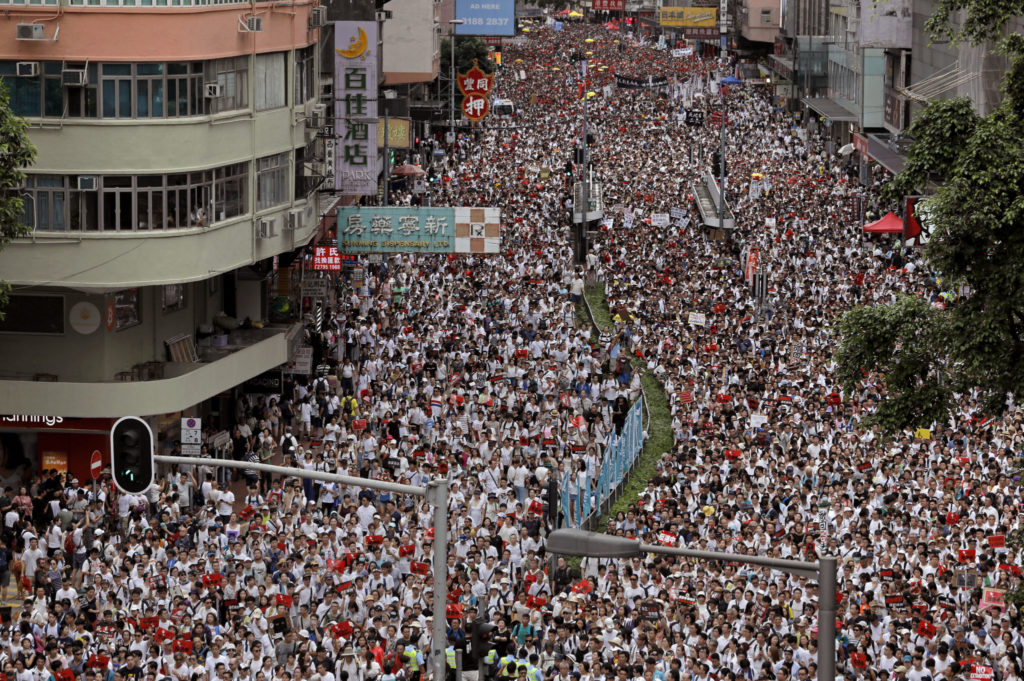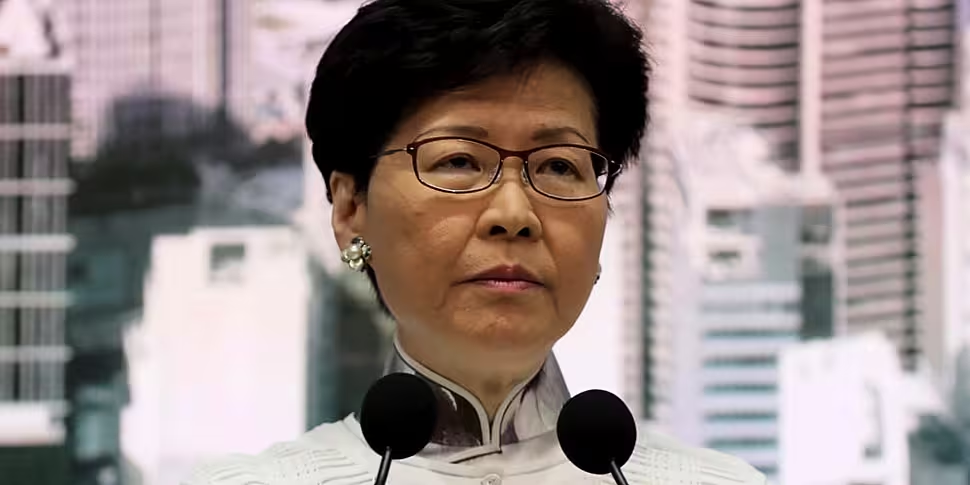The government in Hong Kong has suspended a proposed law that would allow people to be extradited to mainland China for trial.
The region's chief executive Carrie Lam made the announcement on Saturday after days of mass protests.
Critics of the new bill warned that it could be used to target critics of the Chinese regime.
The controversial measure has been shelved indefinitely in response to an angry public backlash.
The bill has seen huge protests in the region in recent days.
Police in riot gear were deployed and fired pepper spray after tens of thousands of people joined demonstrations against the law.
The bill was due for its second reading earlier this week - but the region's governing Legislative Council was postponed indefinitely due to the unrest.
The climb-down on the proposal came ahead of a further major opposition rally on Sunday.
 Protesters march along a downtown street against the proposed amendments to an extradition law in Hong Kong Sunday, June 9, 2019. A sea of protesters is marching through central Hong Kong in a major demonstration against government-sponsored legislation that would allow people to be extradited to mainland China to face charges. (AP Photo/Vincent Yu)
Protesters march along a downtown street against the proposed amendments to an extradition law in Hong Kong Sunday, June 9, 2019. A sea of protesters is marching through central Hong Kong in a major demonstration against government-sponsored legislation that would allow people to be extradited to mainland China to face charges. (AP Photo/Vincent Yu)In a statement on Saturday, Ms Lam said she will suspend the proposed extradition bill indefinitely.
But she did not withdraw the bill outright.
Ms Lam said: "The original urgency to pass the bill in this legislative year, is perhaps, no longer there.
"After a repeated internal deliberation over the last two days, I now announce that the government has decided to suspend the legislative-amendment exercise."
Ms Lam added: "I want to stress that the government is adopting an open mind to heed comprehensively different views in society towards the bill."
Promising the measure would be put back "until our work in communication, explanation and listening to opinions is completed", she said: "We have no intention to set a deadline for this work."
Ms Lam, who previously refused to withdraw the bill and has faced demands for her resignation, said she would "adopt a sincere and humble attitude in accepting criticism" over the government's handling of the issue.
But she suggested something still needs to be done for the future.
"The original purposes remain the same, but then our communication has not been adequate.
"We can only deal with the surrender of fugitive offenders with 20 countries".
Reports say she held a meeting with key government officials late on Friday, and met pro-establishment lawmakers on Saturday morning.
The bill had been on a fast-track to passage, which opponents claimed gave less time for consultation and scrutiny.









